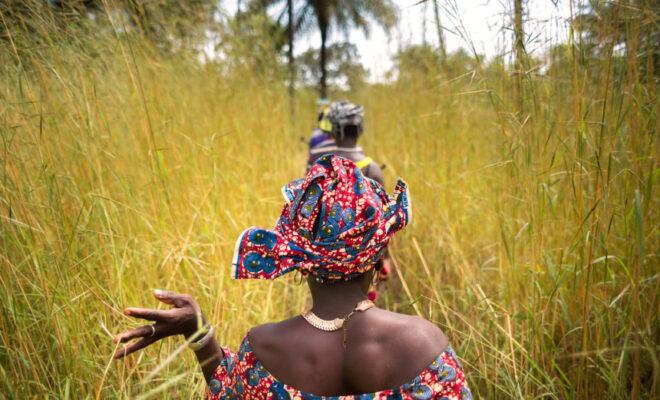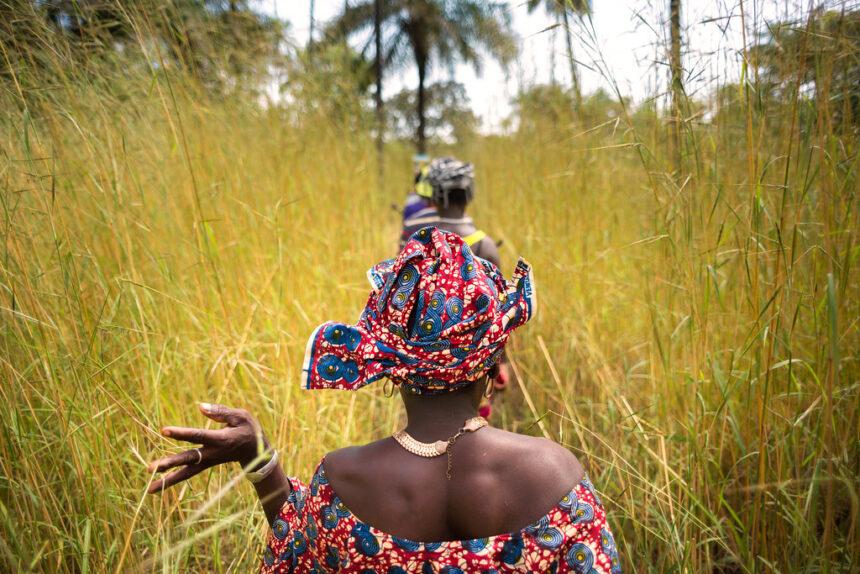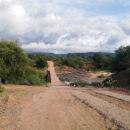Agroecology is the African-led solution we need from COP27

Industrialised agriculture is big driver of emissions. Agroecology is sustainable, resilient, high yield, and gives farmers sovereignty.

As negotiators meet at COP27, agroecology should be at the heart of discussions to mitigate the vast carbon emissions from agriculture. Credit: UN Women/Joe Saade.
It is a welcome shift to see nations recognise the inextricable link between agriculture and the climate crisis at COP27 – the first UN Climate Conference to be held in Africa in six years. It has never been clearer that we cannot protect our people and planet without tackling the problems in our food systems, one of the biggest contributors to the climate crisis. But recognition and conversation are not enough. We cannot allow false promises and abstract commitments to derail the swift, transformative action this crisis demands. We need real solutions, which will only be effective if devised in partnership with impacted communities and local food producers.
The Alliance for Food Sovereignty in Africa (AFSA) – representing more than 200 million farmers, pastoralists, fisherfolk, Indigenous peoples, and women’s and youth movements across the continent – is therefore calling on COP27 to prioritise agroecology as an African-led solution to tackle the climate crisis.
Agriculture – particularly industrialised agriculture – is responsible for at least 10-12% of global human-driven emissions. This doesn’t even include emissions from transporting, storing, or refrigerating food, nor from changes in land use. In the last 20 years, industrial agriculture has expanded across Africa, even as the continent and its food systems bear the brunt of the climate crisis. Rising temperatures, droughts, and floods are hitting communities relentlessly, with the greatest impacts felt among small-scale farmers and women. Estimates suggest that global warming will reduce Africa’s overall food production capacity by 10-20%, putting the food security of hundreds of millions of Africans at risk.
Despite this growing threat, both international and African policy makers and donors are neglecting to substantially invest in locally-led solutions and sustainable models of African agriculture like agroecology. This cannot continue. Rising food prices, increased hunger, and disruption of the global food supply chain in the face of increasingly extreme weather expose the failures of our current model. We must change course toward food systems that will not only mitigate the climate emergency, but also offer African communities stability in, and sovereignty over, their own nutrition.
Governments at COP27 have an opportunity to recognise the expansive potential of agroecology to address these challenges. From Puerto Rico to Kenya, food producers are putting agroecological principles to action, working with the land in an ecologically-sound way to sustain themselves and their communities. But many proponents of agroecology do not hold the same microphone as multinational corporations or funders. They receive far less consideration and financing than industrial or technological agricultural approaches that pursue mass production at the expense of climate resilience.
Agroecology is a farmer-driven system of sustainable agriculture that unites Indigenous knowledge and science-based innovation with an ecosystem’s natural processes. It focuses on growing a diverse range of crops suitable for the climate and land in which they are grown, as opposed to industrial approaches that mass produce one crop for export. Without a dependence on fossil fuel-based pesticides, fertiliser chemicals, and other industrial techniques that release greenhouse gasses, agroecology fights climate change while allowing farmers to feed their communities and protect their livelihoods. This keeps food systems localised, building resilience as communities become more self-sufficient and capable of withstanding global shocks.
In Benin, we can see the benefits of a transition to agroecology in action. While farmers are living with the impacts of the climate crisis, many have been encouraged to adopt industrial approaches like growing a single crop and using harsh chemicals that leave the soil unable to retain moisture and nutrients. Yields have fallen year after year, and 80% of households say their food security is under threat. But farmers in Kom’dè, a small village in north-west Benin, have developed agroecology-based sustainable farming methods that are delivering increased yields by 50-60% and even bringing back some crops once thought lost.
Agroecology is not only the most sensible climate solution – there is also a clear economic case. Transitioning away from industrial agriculture toward sustainable food systems will have far reaching effects, saving the $12 trillion spent worldwide on the “hidden costs” of food and eliminating 8.5% of global emissions attributed to agriculture.
We do not have the luxury of time. COP27 offers a global opportunity to begin a just transition away from high-emitting industrial agriculture, corporate monopolies of food systems, and false climate solutions toward agroecology, food sovereignty, and self-sufficiency.
Leaders at COP27 must put food systems at the centre of climate adaptation plans for Africa and integrate agroecology into the climate negotiations. Systemic change will require a permanent body to coordinate agriculture talks and monitor the implementation of decisions within the United Nations Framework Convention on Climate Change (UNFCCC). Funders who claim to prioritise climate resilience and locally-driven approaches must also commit to providing new, direct, and accessible climate financing to agroecology.
Ultimately, solutions will only be long-lasting if they can be owned and driven by the very people whose way of life the climate crisis is upending. Small-scale food producers and Indigenous communities, especially youth and women, must be meaningfully engaged and their voices and needs must be prioritised.
With the right support, Africa can lead the rest of the world in developing just and sustainable food systems.





